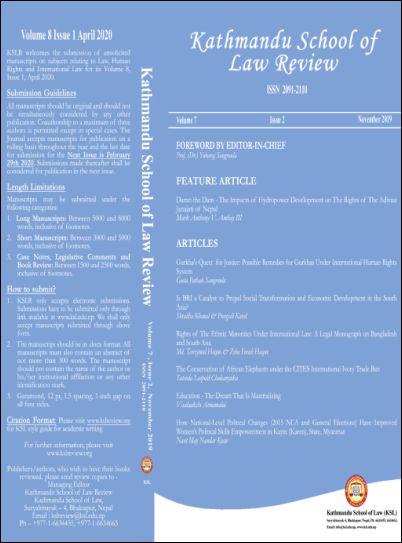Is BRI a Catalyst to Propel Social Transformation and Economic Development in the South Asia?
Abstract
South Asia, home to early human civilization, is one of the richest regions with the diversity it holds; diverse in terms of culture, government system, environment, and their belief of statehood. Despite its diversity in South Asia, it faces a common set of problems that can be rooted back to the fracture in acceptance of differences among the South Asian countries that was the consequence of the common history of colonialism. The lingering effect of colonialism, internal conflict post-independence, and the ineffectiveness of democracy continue to hinder the social transformation and economic development of the South Asian region. The failure of SAARC has questioned the interconnectivity inside and outside South Asia for economic development and uplifting the living standard of people in South Asia. China with the principle of policy coordination, infrastructure connectivity, unimpeded trade, financial integration, close people to people ties and industrial cooperation proposed the concept of One Belt One Road Initiative later renamed to Belt and Road Initiative, is the model of development with the view of making Asia a community or building block transnational connectivity and the idea of connecting this region with infrastructural connectivity. While BRI proposes to integrate various parts of the world including South Asia bringing forth economic and social prosperity, this paper dwells upon the question if BRI can be a potential model to follow to propel social transformation and economic development in South Asia when South Asian countries lack trust within trust themselves. Can it be a catalyst when it is feared that BRI could be a potential foreign strategy to fulfill the aim of Chinese regional hegemony? The paper will be arguing whether it is most significant initiative taken by a state for international cooperation after the establishment of the United Nations, World Bank, or rolling out of Marshall Plan by the USA or is it just a strategy of a rising power to have hegemony. This paper will also assert the idea that political cooperation and social transformation is not possible without achieving economic prosperity.
Downloads
Downloads
Published
How to Cite
Issue
Section
License
Copyright (c) 2019 Kathmandu School of Law

This work is licensed under a Creative Commons Attribution 4.0 International License.
© Kathmandu School of Law

